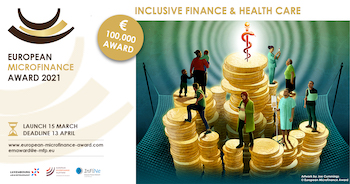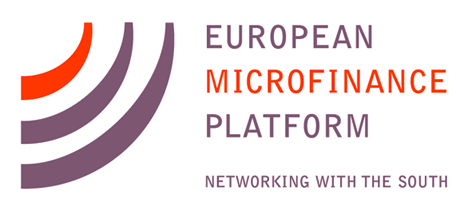Eamar Microfinance of Yemen recently began piloting digital microfinance services in the country. While it is not clear which of these is now available digitally, the microfinance institution offers:
Category: Middle East
MICROCAPITAL BRIEF: YCash Partnering with Red Cross on Digital Payments, Offering Door-to-door Service Due to COVID-19 Pandemic, Conflict in Yemen
YCash, a company in Yemen also known as the National Cash Transfer Company, recently partnered with the International Committee of the Red Cross (ICRC), a humanitarian organization based in Switzerland, to provide cash transfers to ICRC clients “through
MICROCAPITAL BRIEF: Central Bank of Iraq, Mastercard Seek to Boost Digital Payments, Financial Inclusion
Mastercard, a US-based financial services company, recently entered a partnership with the Central Bank of Iraq to expand Iraq’s digital finance ecosystem with the aims of furthering financial inclusion, moving toward a cashless society and promoting socio-economic development in general. The effort will begin by digitizing tuition payments before expanding to address consumer spending, government collections and
SPECIAL REPORT: Apply/Postulez/Postular – European Microfinance Award 2021
From  the European Microfinance Platform (e-MFP): The €100,000 European Microfinance Award 2021 on ‘Inclusive Finance and Health Care’ highlights the crucial role the inclusive finance sector can play in helping low-income and excluded populations both plan day-to-day medical spending and ‘smooth’ out health-related financial shocks.
the European Microfinance Platform (e-MFP): The €100,000 European Microfinance Award 2021 on ‘Inclusive Finance and Health Care’ highlights the crucial role the inclusive finance sector can play in helping low-income and excluded populations both plan day-to-day medical spending and ‘smooth’ out health-related financial shocks.
If you are
MICROCAPITAL BRIEF: EIB Lends $3m to Microfund for Women (MFW) for Entrepreneurs in Jordan
The European Investment Bank (EIB), an institution of the EU, recently lent EUR 2.7 million (USD 3.3 million) to Microfund for Women (MFW) to be on-lent for microenterprise in Jordan. These loans are intended to support 9,100 people, 90 percent of whom are women, whose livelihoods have been threatened by the effects of the COVID-19 pandemic. EIB drew the funds from the Southern Neighborhood Microfinance
MICROCAPITAL BRIEF: Jordan Trade Facilities Company Borrows $5m for MSMEs from Sanad Fund
Sanad Fund for MSME, a Luxembourg-based investor in organizations serving micro-, small and medium-sized enterprises (MSMEs), recently agreed to loan the equivalent of USD 5 million in Jordanian dinar to the Jordan Trade Facilities Company (JoTF). The investment is intended to
MICROCAPITAL BRIEF: Central Bank of Iran Planning NFC System to Allow Retail Payments via Mobile Devices in Lieu of Cards
The Central Bank of Iran reportedly is developing a contactless payment system using near-field communication (NFC) technology that will allow customers to make retail payments using mobile phones. Among the goals of the effort is to reduce: (1) costs for banks and their customers; (2) the use of payment cards, which are gene
MICROCAPITAL BRIEF: Fintechs Carticard, egabi, Mastercard Partner to Offer Microloans via Payment Cards in Egypt
Carticard, an affiliate of Egypt-based online business solutions platform egabi, recently partnered with Mastercard, a US-based payments technology company, through which Carticard will issue loans via Mastercard payment cards. This will increase to 400,000 the number of payment cards
MICROCAPITAL BRIEF: EIB to Loan $517m to Banque Misr of Egypt to Fund SMEs During COVID-19 Pandemic
The European Investment Bank (EIB), the EU’s long-term lending institution, recently agreed to provide a line of credit in the amount of EUR 425 million (USD 517 million) to Banque Misr
SPECIAL REPORT: Financial Inclusion for Forcibly Displaced Persons (FDPs) – Part 2: Regulatory Barriers, Segmenting Needs
(This  is the companion feature to an earlier piece on a European Microfinance Week conversation on serving refugees.)
is the companion feature to an earlier piece on a European Microfinance Week conversation on serving refugees.)
Swati Mehta Dhawan of Germany’s Catholic University of Eichstätt-Ingolstadt argued for building up legal frameworks to allow forcibly displaced persons (FDPs) to escape “infinite limbo” by accessing documentation for identification purposes, working legally and integrating with host populations. She offered the example of a person displaced to Kenya, who has been there for 15 years without being allowed to work. Hans-Martin Zademach, also of Catholic University, noted many are “stuck in survival mode,” more in need of a reliable income source than methods for managing money.
However, Ms Dhawan explained that FDPs’ needs for financial services often increase as years go by. A common trajectory is
SPECIAL REPORT: Lessons from Giving Away, Selling Microinsurance with Remittances
As  part of the ongoing search for models that can make microinsurance profitable, the Luxembourg-based nonprofit ADA partnered with UAE-based insurtech Democrance to sell policies to migrant workers in Dubai as they send money to family in their home countries. The incentive for remittance providers to participate is that the draw of microinsurance can increase their customer base and allow differentiation from competitors.
part of the ongoing search for models that can make microinsurance profitable, the Luxembourg-based nonprofit ADA partnered with UAE-based insurtech Democrance to sell policies to migrant workers in Dubai as they send money to family in their home countries. The incentive for remittance providers to participate is that the draw of microinsurance can increase their customer base and allow differentiation from competitors.
The target population is migrants from India and the Philippines, who are generally tech savvy and aged 25 to 45 years old. Most workers earn up to AED 4,000 (USD 1,100) per month and send about a quarter of that amount home. Rise, a UAE-based facilitator of financial services to migrants, enrolled 1,000 customers by
SPECIAL REPORT: Resilience Among Microfinance Institutions? “Region of Crisis” Relatively Stable; “Moratorium Veil” Yet to Lift
As  part of the opening day of European Microfinance Week, Mohammed Khaled of the World Bank Group’s International Finance Corporation stated that the effects of the COVID-19 pandemic on the microfinance sector in the Middle East and North Africa (MENA) so far have not been as bad as was feared earlier in 2020. Most of the large microfinance institutions (MFIs) in the region have maintained 30-day portfolio-at-risk (PAR) ratios below 4 percent. Mr Khaled said, “Among leading MFIs, PAR did not rise as high as expected. We thought [it might rise to] 10 percent to 20 percent, but many MFIs have kept things under control.” Part of the reason for this, he believes is that “this is
part of the opening day of European Microfinance Week, Mohammed Khaled of the World Bank Group’s International Finance Corporation stated that the effects of the COVID-19 pandemic on the microfinance sector in the Middle East and North Africa (MENA) so far have not been as bad as was feared earlier in 2020. Most of the large microfinance institutions (MFIs) in the region have maintained 30-day portfolio-at-risk (PAR) ratios below 4 percent. Mr Khaled said, “Among leading MFIs, PAR did not rise as high as expected. We thought [it might rise to] 10 percent to 20 percent, but many MFIs have kept things under control.” Part of the reason for this, he believes is that “this is
MICROCAPITAL BRIEF: EBRD, IFC Lend Alternatif Bank $50m to Sustain SMEs in Turkey During COVID-19 Pandemic
The UK-based European Bank for Reconstruction and Development (EBRD) and the World Bank Group’s International Finance Corporation (IFC) each are lending USD 25 million to Alternatif Bank,
MICROCAPITAL BRIEF: Al Hussein Fund, Sanad Fund for MSME Offer Online Curriculum for Young Owners of Small Businesses in MENA
The Jordan-based, nonprofit Al Hussein Fund for Excellence and the Sanad Fund for MSME, a Luxembourg-domiciled investor in micro-, small and medium-sized enterprises (MSMEs), recently partnered to give young business owners in the Middle East and North Africa no-cost access to a course called “How to Start and Manage a Successful Business.” The course, which was delivered in Arabic on the Edraak online education platform, “comprises
MICROCAPITAL BRIEF: Islamic Development Bank (IsDB), SCIEF Launch $30k Changemakers Competition for Shariah-compliant Fintech, Microfinance, “Creative Economy”
The Islamic Development Bank (IsDB), a multilateral development finance institution based in Saudi Arabia, recently partnered with the Saudi-Spanish Center for Islamic Economics and Finance (SCIEF), which is based in Spain, to launch the Islamic Finance Changemakers Competition. Applications are open to participants in
MICROFINANCE PAPER WRAP-UP: “Gendered Social Norms in Financial Inclusion: A Diagnostic Study from Southeastern Turkey,” by Adriano Scarampi et al, published by CGAP
Through this qualitative study on how social norms impact women’s “access to and use of financial services,” the authors explored potential interventions for promoting women’s financial inclusion. They interviewed 93 members of southeastern Turkey’s Arab population. This community was selected because Turkey’s financial-inclusion gender gap closely resembles that of the Middle East and North Africa (MENA) region as a whole, and the country holds other geographical and cultural similarities to the Arab world, therefore increasing
MICROFINANCE PAPER WRAP-UP: “Women’s Access to Cash Transfers in Light of COVID-19;” by Shelby Bourgault, Megan O’Donnell; published by Centre for Global Development
This paper analyzes the efficacy of various cash-transfer programs created by the Pakistani government and their ability to reach low-income women and promote economic gender equality. Prior to the COVID-19 pandemic, the Pakistani-government was in the process of building out multiple cash transfer schemes targeted at women, including the Kafaalat program which seeks to promote economic empowerment by helping women access bank accounts, digital payments, mobile phones and
SPECIAL REPORT: Stakeholders Fearful, But with Tentative Hope Too in e-MFP’s Just-published “COVID-19 Financial Inclusion Compass”
The European Microfinance Platform (e-MFP) has published the COVID-19 Financial Inclusion Compass, a special edition of the Compass series specifically focused on the current challenges, medium-term priorities, concerns, opportunities and forecasts for a sector facing probably the greatest crisis in its modern history.
European Microfinance Platform (e-MFP) has published the COVID-19 Financial Inclusion Compass, a special edition of the Compass series specifically focused on the current challenges, medium-term priorities, concerns, opportunities and forecasts for a sector facing probably the greatest crisis in its modern history.
The world – the financial inclusion sector included – is in the midst of twin crises: (1) a novel and highly contagious virus with no vaccine or cure that shows no signs of abating; and (2) a genuinely global recession as a result of the unavoidable containment measures put in place. The situation is uncertain and dynamic. Six months from now, the landscape will
